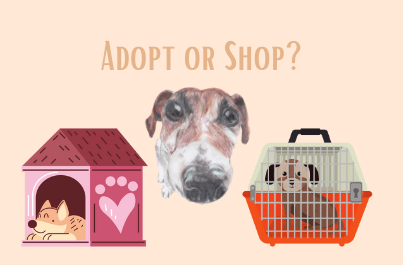The staggering statistics surrounding animal shelters in the United States paint a sobering portrait of the plight faced by millions of companion animals each year. With an estimated 6.3 million entering shelters nationwide annually, comprising approximately 3.1 million dogs and 3.2 million cats, the magnitude of this issue cannot be overstated.
Tragically, a significant proportion of these shelter inhabitants meet an untimely end, with approximately 920,000 animals, including 390,000 dogs and 530,000 cats, euthanized annually. While this figure marks a decline from the grim toll of 2.6 million euthanizations recorded in 2011, it underscores the urgent need for concerted action to alleviate the strain on animal shelters and stem the tide of unnecessary suffering.
The choice between adoption and purchasing from breeders is not merely a matter of preference but one with profound ethical and practical implications. Advocates of adoption rightly emphasize the tangible benefits it confers, chief among them being the opportunity to provide a second chance to animals in need. When people adopt from a rescue group, they not only gain insight into the animal’s history but also benefit from ongoing support and guidance during the adjustment period, ensuring a smooth transition into their new home.
Overcrowding and limited resources plague many animal shelters, exacerbating the challenges faced by both staff and residents. The influx of animals often exceeds the capacity of these facilities, resulting in cramped living conditions and diminished quality of life. Consequently, shelters are compelled to turn away animals or resort to euthanasia, further underscoring the urgent need for increased adoption rates.
Moreover, the moral imperative to adopt is bolstered by considerations of cost and sustainability. While purchasing a pet from a breeder can entail significant financial outlay, adoption offers a more economical alternative, with costs ranging from $50 to $200. Beyond financial considerations, adoption represents a sustainable choice, curtailing the demand for animals bred under potentially exploitative conditions and promoting responsible pet ownership.
The ethical dimensions of adoption versus purchasing from breeders extend beyond mere economic calculus, encompassing broader considerations of animal welfare and compassion. Adopted animals often hail from disadvantaged backgrounds, having endured neglect, abandonment or mistreatment. By providing a loving home to these animals, adopters not only ,enrich their own lives but also affirm their commitment to alleviating the suffering of sentient beings.
The decision to adopt an animal represents a profound act of compassion and solidarity with the most vulnerable members of our society. As responsible stewards of the planet, it behooves us to confront the systemic injustices perpetrated by the pet industry and embrace a more humane and sustainable approach to pet ownership. In so doing, we honor the dignity of all living creatures and forge a path toward a more compassionate and equitable future.








